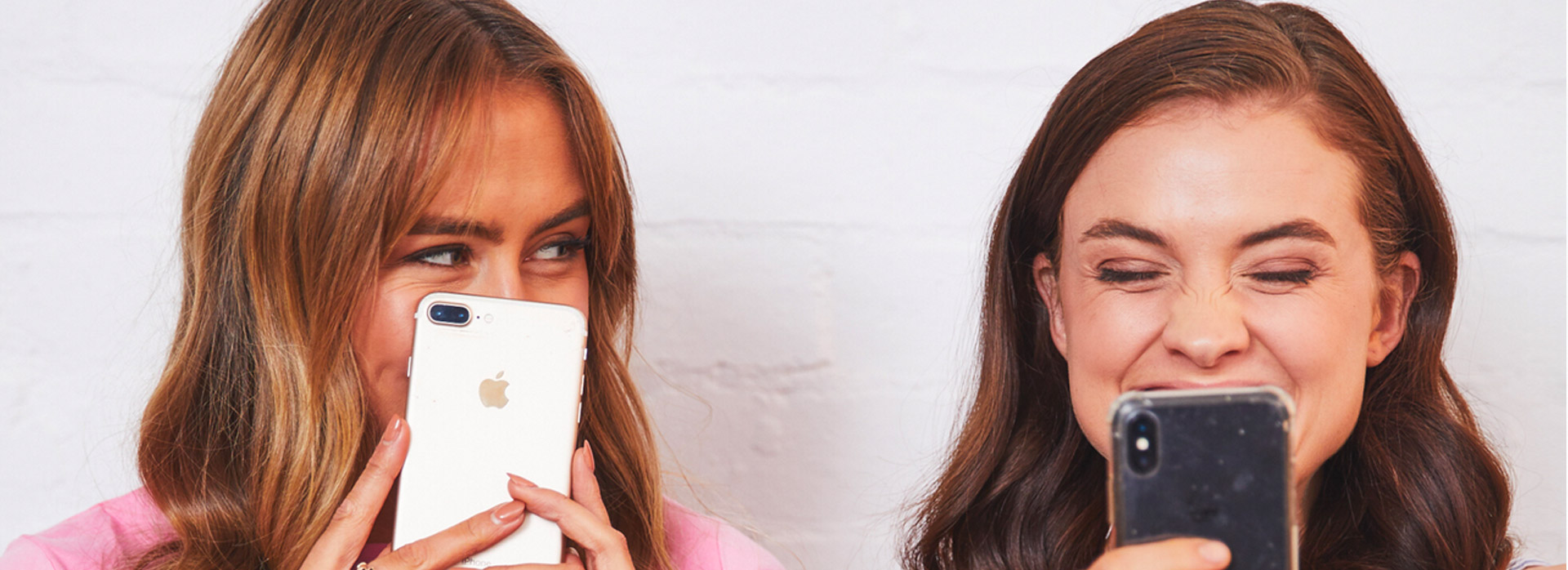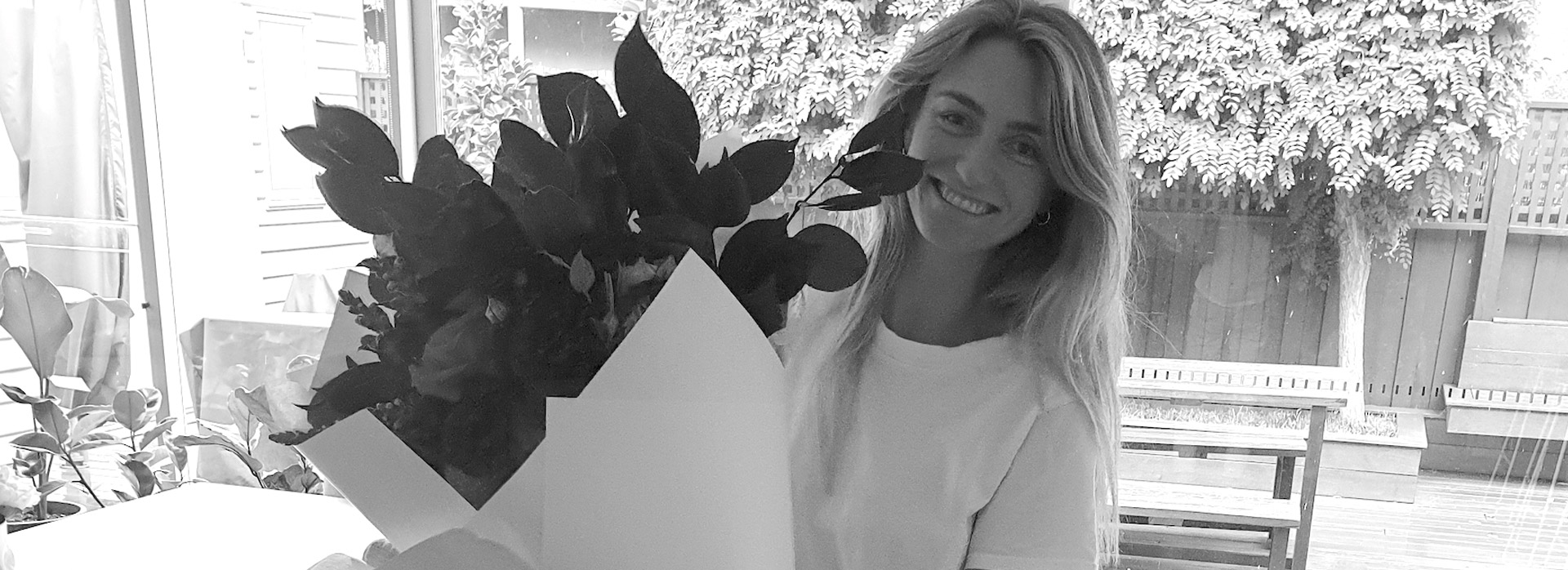Miscarriage – Screw the stigma, Nicole’s talking about it
“I had a miscarriage” – something that I never thought I was going to hear come out of my mouth.
When I found out I was pregnant in September 2020, I had heard about the upsetting fact that 1 in 4 pregnancies end in a miscarriage – but I never thought I would be that one, twice.
During my pregnancies, I always questioned why there is this unspoken rule that you shouldn’t tell many people you’re pregnant until you’re over that 12 week hump. I always thought, why should I wait to tell my friends the most exciting news ‘just in case’ when in fact, I would want, and more importantly need, their support if anything were to happen. Which unfortunately in my case, it did.
I consider myself very lucky to have such an amazing support group around me and even though I was separated from my family in NZ because of the pandemic, I had never felt so much love and support. I’ve heard that having a miscarriage can be a lonely experience, but fortunately for me, I felt the complete opposite.
However, what I did feel is incredibly unprepared. With my first miscarriage, my GP gave me a week off work, booked me in for a dilation and curettage (D&C) the following Friday, and off I went. This brought up a lot of anger in me, given miscarriages are so common, why was I not equipped with proper information? Because of this, I am now extremely passionate about building awareness and sharing my story in hope that other women don’t have to feel as lost and confused as I was navigating the unfortunate ride of miscarriage.
My heart breaks for any woman and her partner who have to go through this, no matter what stage of your pregnancy. There is nothing anyone can say to make things better, it’s such a crappy thing to go through. Just remember that you are not alone. I also wanted to acknowledge that miscarriage is just one of many road bumps on the way to motherhood. I take my hat off to women who have experienced still birth, I can’t even begin to imagine the heart break, along with those struggling with infertility, IVF, surrogacy and adoption. So many different paths to the same beautiful goal.
Now, I am by no means an expert, and I know that everyone and every circumstance is different, but I thought it might be helpful to share some of the things that got me through the hardest days.
12 things that helped me through my miscarriages:
- Talking about it – For me personally, I found that the more I spoke about it, the easier it was to digest and process what has happened. I understand that not everyone is an open book like me, but it’s so important to find your support group. Whether it be your parents, friends or partner, openly talking about your experience can really help.
- Social media detox – When you’re feeling your most vulnerable, taking a break from social media is really important. No doubt with the excitement of your pregnancy you started to follow pregnancy and baby-related Instagram pages or profiles. Seeing this along with pregnancy announcements, bump updates or baby arrivals can be really triggering, so it’s important to take a step back as you grieve. When you’re comfortable to jump back on, you could unfollow or mute any accounts that may upset you, or ask a friend to do this on your behalf if you need.
- Seeing a Psychologist – I highly recommend speaking to a professional, I was fortunate enough to speak with a psychologist who specialises in pregnancy loss and fertility counselling, and found that incredibly helpful. For some reason, during a time where my body and mind needed to be nurtured, I was quite hard on myself for not being my ‘normal happy self.’ My psychologist helped me to understand that my feelings are valid, and that I had been through something horrible and that it’s completely normal to grieve. If you’re in Melbourne, I used the Antenatal and Postnatal Psychology website to find my psychologist. Ask your GP about the mental healthcare plan, as these sessions can often be subsidised.
- Avoid Dr Google – There is so much outdated, misinformation out there and in a vulnerable state of mind it’s best that you stay clear of Dr Google. At the time of my miscarriages I wasn’t equipped with any reliable sources which I found really frustrating, but thankfully KIC’s Women’s Health Expert, Dr Bronwyn, has created a list of credible sources. If you’re looking for expert advice on miscarriages please head to our latest blog.
- Feel your emotions and have a cry – Remember what you’ve gone through is horrible, it sucks and it is so unfair that this has happened to you. It’s okay to feel sad and angry. Don’t try to bottle up your emotions, have a big cry when you need to and grab a pillow and punch it if you feel angry. You’ll feel a little better after you release the tension.
- Be open and transparent with your work – I am so grateful that my workplace was so incredibly supportive when I went through my miscarriages. It meant that I could take the time off that I needed, and ease my way back into work when I was ready. You may not need to tell your entire team, but it’s helpful to inform those who work closely with you, so they can help you manage your workload, and support you. Being open with work means that you don’t have to pretend that everything is sunshine and rainbows, putting on a front can be really exhausting, and you don’t need that added pressure right now.
- Meditating / Yoga – I didn’t jump straight into yoga and meditation, I just wasn’t in the mood. But about two weeks after my d+c I slowly introduced exercise back into my routine, and I found slow, mindful movements were what my body was craving. After my miscarriages, especially the first one, my anxiety was through the roof, so I found that taking the time to nurture my body and mind was really important.
- Writing / Journaling – I found that writing was a helpful outlet. I was up one night with painful cramps, and that was where I started writing my story. Similar to talking about it, it helps to process your thoughts. When you’re comfortable to look back on what you have written, you’ll be proud of what you have overcome. Trust me, it does get easier, it just takes time.
- Netflix & literally chill – Find a light-hearted series and binge your little heart out! The couch will be your best friend, heat up a wheat bag or hot water bottle, grab your doona and set yourself up for the week. Your body needs to rest and you deserve it.
- Going to bed early – Sleep is key. Having a miscarriage is such an emotional rollercoaster. You’ve gone from an absolute high, to the lowest of lows. It’s emotionally draining so make sure you get enough sleep to recharge your body for the next day.
- Life Uncut Podcast, episode 25– In this raw and real episode, Laura Byrne chats openly about her two miscarriages. I listened to this a few days before my d+c, and FINALLY I felt like I could relate to someone. Hearing Laura’s experience helped me so much, and hopefully by sharing my story I’m able to help other women too.
- My dog!! Seriously, I don’t know how I would’ve got through my miscarriages without my doggo, Gus. He sat by my side as I grieved both of my babies, always making me grin when times are grim. If you don’t have a dog, I highly recommend taking a stroll to the nearest dog park, they are just the BEST!

Five ways to help a loved one going through a miscarriage:
- Just be there – Whether it be in person or over the phone, your friend is going to need you right now. I know it must be uncomfortable but don’t avoid the situation, showing up is what matters the most. If you are visiting, try not to overstay your welcome. It’s such an emotionally draining time, and she’ll need her rest.
- Check in on the daily – A key thing to remember is that grief doesn’t go away overnight. It’s so important to regularly check in with your friend, it doesn’t take much, just a simple message saying ‘thinking of you’ or ‘how are you today?’ They may not respond, but it’s so nice to know that people are thinking of you and understand your heartbreak. I don’t know if this is true, but I swear my friends had a rotating schedule to make sure that I was contacted every day for the first two-three weeks, and it honestly meant the world to me.
- Avoid silver linings – I understand that these comments would come from a good place, but trust me, silver linings aren’t helpful in the early stage of a miscarriage. Do your best to avoid: “At least you can get pregnant” “At least it was early days” “At least you didn’t know your baby / or the sex” “At least you already have a child” (if this is baby number two) “It just wasn’t meant to be”
- Listen – Speaking with someone who has suffered from a miscarriage can often be awkward, uncomfortable and you probably won’t know what to say. But that’s totally okay, I didn’t expect my friends and family to come bearing wise words, answers and solutions, just being there for me is what mattered. Ask your friend how they are feeling, and let them guide the conversation. Here are some things you could say: “I’m sorry” “What can I do to help?” “I’m here for you”
- Send love from afar – If you’re unable to visit your friend, show them that you’re thinking of them. It doesn’t have to be a grand gesture, even a handwritten card would mean the world right now. My favourite surprise was a bunch of sunflowers, they made me smile each time I saw them – which can be a rarity in the early days of miscarrying. Other thoughtful gifts that were much appreciated: A gift pack with tea, a wheat bag and choccies, a cute and comfy pair of pyjamas, a beautiful scented candle, flowers, a gift pack with sleepy-scented body wash and moisturiser – such a nice way to end an emotional day.
If this has helped, which I really hope it has, I would love to hear your thoughts and feedback in our Facebook community.
You might also like

- Blog
- KICBUMP
As part of the launch of KICBUMP we felt that it was really important to acknowledge and educate that sometimes the road to motherhood doesn’t always go as planned. Miscarriages are really common but often aren’t spoken about. So, we’ve asked KIC’s Women’s Health Expert, Dr Bronwyn Hamilton to answer 10 common questions about miscarriages.

- Blog
- HEALTH
When you think about your health, your lady parts sadly don’t often get much attention! However, there are easy things you can do to ensure your lady parts are in good health and this may save you from experiencing issues such as thrush and other annoying lady problems.

- Blog
- HEALTH
Being a woman, there is a good chance that one day you will need to see a Gynaecologist (Women’s Health Specialist) at some point in your life. Keeping up to date with your PAP smears/Cervical Screening Tests and any health concerns is important so I thought I would share a few facts about a visit […]



